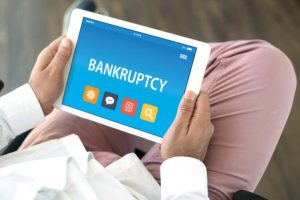Does Bankruptcy Take Care of Back Taxes?

The economy is changing. Roughly a third of American workers freelance full time. That proportion has roughly doubled since 2014. Freelance income varies significantly from year to year and even month to month. So, it is easy to fall behind on estimated tax payments. Furthermore, some freelancers are unfamiliar with all the complex rules in this area.
Bankruptcy offers these debtors, and other people struggling with heavy debt loads, a fresh start. Free from oppressive state or federal income tax debt. Depending on the type of bankruptcy filed, the facts of the matter, and some other factors, bankruptcy might be the best way, or the only way, to eliminate back taxes in a relatively painless manner.
Discharging Taxes in a Chapter 7
Income tax is an unsecured debt. As such, it is dischargeable in a Chapter 7. Discharge means the judge eliminates the legal obligation to repay the debt. The collateral consequences of that debt, such as an IRS tax lien, remain. An attorney must deal with such matters separately.
Technically, past-due taxes are a priority unsecured debt. As a result, they are only dischargeable in certain situations. The discharge rules are:
- No Fraud: Willfully evaded taxes are not dischargeable in bankruptcy. Tax fraud includes things like using a false Social Security number or falsely claiming a dependent child. Mathematical mistakes, unless they involve thousands of dollars, are usually not fraudulent. Failure to file is not tax fraud either.
- Three Years: The debt to be discharged must be at least three years old. Note that Tax Day is not always April 15. In 2020, the IRS moved the filing deadline to July. And, in many years, April 15 falls on a Sunday or on a federal holiday.
- Two Years: The tax returns at issue must have either been timely filed or on file for at least two years prior to filing. Substitute returns do not count. The taxpayers must have filed the returns themselves.
- 240 Days: Tax debt is not dischargeable if the IRS or other income tax authority has assessed the debt in the last 240 days. Assessment is an accounting term which essentially means calculating the entire amount due.
That last requirement torpedoes many Chapter 7 income tax discharge efforts. If taxing authorities believe they are owed money, they rarely wait eight months to collect it.
Paying Back Taxes in a Chapter 13
Bankruptcy’s Automatic Stay prohibits creditor adverse action, such as wage garnishment and bank account levy. This provision applies in a Chapter 7 as well as a Chapter 13. The Automatic Stay lasts up to five years in a Chapter 13, so if a tax debt is nondischargeable in a Chapter 7, it is usually payable in a Chapter 13.
Chapter 13 debtors repay their past-due debts, mostly including secured delinquency and unsecured priority debts, during the protected repayment period. Courts have consistently held that public authorities, like the IRS, must respect the Automatic Stay. So, these debtors pay back taxes over time without any IRS harassment.
Reach Out to Effective Lawyers
Bankruptcy usually takes care of back taxes. For a free consultation with an experienced Chicago bankruptcy lawyer, contact the Bentz Holguin Law Firm, LLC. Convenient payment plans are available.
Resource:
fastcompany.com/90411808/35-of-the-u-s-workforce-is-now-freelancing-10-million-more-than-5-years-ago


